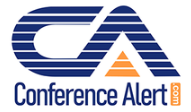Writing a conference abstract is a crucial skill for researchers and professionals aiming to present their work at academic or industry conferences. Well-crafted abstract serves as a summary of your research, highlighting its significance, objectives, methodology, and key findings. It not only provides a first impression of your work to reviewers but also helps them determine research is suitable for the conference.
Crafting a compelling abstract can increase your chances of acceptance, enabling you to share your insights with a broader audience. Explore the essential steps and tips to write an effective conference abstract that captures attention and communicates your work’s value. Attending conferences is an essential aspect of professional growth in various fields, from academia to industry.
Why Attend Conferences?
Conferences offer numerous benefits for professionals and researchers.
- Networking Opportunities: Conferences are excellent venues for meeting like-minded individuals, potential collaborators, and influential figures in your field. Networking can lead to research partnerships, job opportunities, and increased visibility for your work.
- Exposure to New Ideas: Attending conferences allows you to learn about the latest research, trends, and technologies. Listening to experts and peers present their findings can inspire new ideas and approaches for your work.
- Professional Development: Many conferences offer workshops, panels, and keynote speeches that provide valuable insights and training. Enhance your skills and knowledge, contributing to your professional growth.
- Feedback on Your Work: Presenting your research allows you to receive constructive feedback from peers and experts. Input can be invaluable for improving your work and refining your ideas.
- Showcasing Your Research: A conference is an opportunity to share your findings with a broader audience. Successfully presenting your research can enhance your reputation and open doors for future opportunities.
What is a Conference Abstract!
Conference abstract is a concise summary of your research project, typically submitted as part of the application process to present at a conference.
- Overview of Your Research: Abstract provides a snapshot of your study, including its objectives, methodology, key findings, and implications.
- Decision-Making Tool for Organizers: Conference organizers use abstracts to determine your work fits within the conference theme and is of interest to attendees.
- Promotional Material: Accepted abstracts are often published in conference proceedings or programs, allowing attendees to identify relevant sessions and talks.
- Invitation to Engage: A well-crafted abstract can intrigue attendees, prompting them to engage with you during or after your presentation.
Key Components of a Conference Abstract
Effective conference abstract typically includes the following components:
- Contextual information outlining the significance of your research and the problem it addresses.
- Brief description of the research methodology used in your study.
- A summary of the key findings of your research.
- A discussion of the implications of your findings and their relevance to the field.
How to Find Conference Abstracts
Finding suitable conferences for submitting your abstract can be an essential part of your academic or professional journey.
- Academic Journals: Many academic journals publish information about upcoming conferences in their respective fields. Keep an eye on the announcements section of journals you regularly read.
- Professional Associations: Most professional organizations related to your field host conferences and provide information on upcoming events. Joining these associations can keep you informed about relevant conferences.
- Online Conference Directories: Conference Alerts databases of upcoming conferences. You can filter results by discipline, location, and date.
- Social Media and Networking Sites: Platforms like Twitter, LinkedIn, and can be excellent resources for discovering conferences. Facebook Many organizations announce events on these platforms, and you can follow relevant hashtags for updates.
- University or Institutional Websites: Affiliated with a university or research institution, check their website or departmental announcements for information about conferences in your field.
- Word of Mouth: Colleagues, mentors, or professors about upcoming conferences they might know of. Networking within your academic or professional community can yield valuable leads.
Benefits of Conference Abstracts
Writing and submitting conference abstracts comes with numerous benefits:
- Enhances Visibility: A well-written abstract increases your visibility in the research community. Presenting at conferences allows you to showcase your work to peers, which can lead to recognition and future opportunities.
- Improves Writing Skills: Crafting a conference abstract requires you to distill complex ideas into a concise format. Process can significantly enhance your writing and communication skills, which are valuable in any professional setting.
- Boosts Your CV: Successfully presenting your research at a conference adds a prestigious element to your CV. Demonstrates your commitment to your field and your ability to communicate your findings effectively.
- Facilitates Knowledge Sharing: Presenting your research allows you to share your findings with others, contributing to the collective knowledge in your field. Can inspire others and foster collaborative opportunities.
- Increases Your Confidence: Presenting at a conference can be a confidence booster. It allows you to articulate your research to an audience and engage in discussions, helping you grow as a professional.
- Feedback for Improvement: Engaging with peers during your presentation can provide valuable feedback on your research. Constructive criticism can lead to improvements in your work and help you refine your ideas.
Tips for Writing an Effective Conference Abstract
- Follow Submission Guidelines: Adhere to the specific requirements set by the conference organizers, including word count, format, and submission process.
- Be Clear and Concise: Use straightforward language and avoid jargon. Ensure your abstract is easy to understand and gets to the point quickly.
- Focus on Key Elements: Highlight the most critical aspects of your research. Keep your abstract focused and avoid unnecessary details that may confuse readers.
- Proofread and Edit: Take the time to revise your abstract thoroughly. Check for grammatical errors, typos, and clarity. A polished abstract reflects professionalism.
- Get Feedback: Before submitting your abstract, seek feedback from colleagues or mentors. They can provide valuable insights and help you identify areas for improvement.
- Practice Writing Abstracts: Abstracts you write, the better you will become at condensing your research into concise summaries. Consider submitting to various conferences to gain experience.
Attending a Conference Abstract
Abstract is accepted, attending the conference is the next step.
- Prepare for Your Presentation: Familiarize yourself with the conference schedule and plan your presentation accordingly. Practice delivering your talk to ensure you can communicate your research effectively.
- Engage with Other Attendees: Networking is a crucial part of attending conferences. Engage with fellow attendees, ask questions, and participate in discussions to broaden your connections and gain insights.
- Take Notes: Bring a notebook or device to jot down key points, ideas, and contact information from sessions and discussions. Remember important insights and connections after the conference.
- Attend Various Sessions: Explore different sessions and topics outside your immediate area of research. Exposure can provide new perspectives and ideas that you may incorporate into your work.
- Follow Up: After the Business conference, reach out to the people you connected with. Send a brief email or message to maintain the relationships you’ve built and explore potential collaborations or discussions.
List of for Conference Abstracts
1. American Educational Research Association (AERA) Annual Meeting
- Focus: Education research across various disciplines.
- Abstracts: Highlight innovative educational practices, theories, and policies.
2. IEEE International Conference on Communications (ICC)
- Focus: Telecommunications and communication technologies.
- Abstracts: Cover advancements in communication theory, wireless networks, and digital communications.
3. Society for Neuroscience (SfN) Annual Meeting
- Focus: Neuroscience research.
- Abstracts: Present cutting-edge research in neurobiology, behavior, and cognitive neuroscience.
4. International Conference on Machine Learning (ICML)
- Focus: Machine learning and artificial intelligence.
- Abstracts: Include theoretical advancements, algorithmic developments, and practical applications.
5. Annual Meeting of the American Psychological Association (APA)
- Focus: Psychology and mental health.
- Abstracts: Discuss research findings related to clinical psychology, social psychology, and developmental psychology.
6. International Conference on Human-Computer Interaction (HCI)
- Focus: User experience and interaction design.
- Abstracts: Explore topics like usability, user experience research, and design methodologies.
7. Annual Meeting of the American Chemical Society (ACS)
- Focus: Chemistry and related sciences.
- Abstracts: Cover various aspects of chemistry, including organic, inorganic, and physical chemistry.
8. Global Health Conference
- Focus: Global health issues and solutions.
- Abstracts: Address health equity, disease prevention, and public health initiatives.
9. International Conference on Robotics and Automation (ICRA)
- Focus: Robotics and automation technologies.
- Abstracts: Present research in robot design, autonomous systems, and human-robot interaction.
10. International Conference on Sustainable Development
- Focus: Sustainability practices and research.
- Abstracts: Discuss environmental, economic, and social aspects of sustainability.
11. International Society for Technology in Education (ISTE) Conference
- Focus: Educational technology.
- Abstracts: Explore innovations in teaching and learning with technology.
12. International Conference on Bioinformatics and Biomedical Technology (ICBBT)
- Focus: Bioinformatics and biomedical engineering.
- Abstracts: Highlight computational biology, genomics, and bioengineering research.
13. International Conference on Computer Vision (ICCV)
- Focus: Computer vision and image processing.
- Abstracts: Cover advancements in image recognition, object detection, and computer vision algorithms.
14. Annual Meeting of the American Association for the Advancement of Science (AAAS)
- Focus: Multidisciplinary science.
- Abstracts: Discuss significant scientific advancements across various fields.
15. Annual Meeting of the American Marketing Association (AMA)
- Focus: Marketing research and practices.
- Abstracts: Explore topics such as consumer behavior, branding, and digital marketing strategies.
Importance of Conference Abstracts
- Conciseness: Abstracts condense complex research into a digestible format, allowing attendees to quickly grasp the main ideas and results.
- Networking Opportunities: A well-crafted abstract can attract interest from peers, leading to networking opportunities and collaborative projects.
- Peer Review: Conference abstracts are often peer-reviewed, ensuring that only high-quality research is presented at the conference. Adds credibility to the work being shared.
- Professional Development: Presenting at conferences enhances one’s visibility in the field, contributing to professional growth and career advancement.
Writing a conference abstract is a valuable skill that can significantly enhance your academic and professional journey. By understanding the purpose of abstracts, following guidelines, and crafting clear and concise summaries, you can effectively communicate your research to a wider audience.




